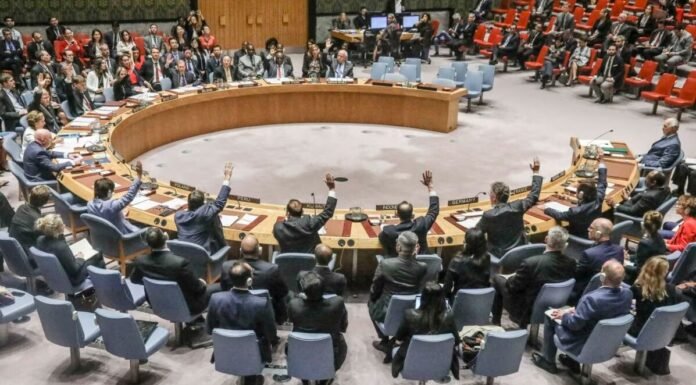Understanding Resolution 2757 (2024)
Resolution 2757 (2024) is a pivotal document adopted by the United Nations Security Council, extending the EU-led stabilization force, EUFOR-Althea, in Bosnia and Herzegovina. This resolution emerges within a historical context, addressing ongoing challenges in the region that stem from the aftermath of the Bosnian War, which ended with the signing of the General Framework Agreement for Peace in 1995. The extension of this multinational force is critical to maintaining stability, ensuring security, and supporting the overall peace process in Bosnia and Herzegovina.
This resolution was adopted unanimously by the Security Council, reflecting a strong consensus among member states regarding the importance of international engagement in Bosnia and Herzegovina. Under Chapter VII of the UN Charter, the resolution outlines the need for continued support and the conditions under which EUFOR-Althea operates. It specifically reinforces the role of the European Union and its member states, empowering them to act decisively in preserving the stability of the region and upholding the peace agreement’s provisions.
The key provisions established by Resolution 2757 authorize the EU-led force to maintain a safe and secure environment for all citizens of Bosnia and Herzegovina, while also allowing for humanitarian and reconstruction efforts. This mandate aligns with the broader objectives of the General Framework Agreement, which seeks to ensure the territorial integrity of Bosnia and Herzegovina, foster inter-ethnic collaboration, and maintain peace throughout the country. The extension of EUFOR-Althea’s mandate not only illustrates the ongoing commitment of international actors to peacekeeping in the region but also signifies a collective recognition of the challenges still faced by Bosnia and Herzegovina. Overall, the resolution plays a vital role in coordinating international efforts and strengthening the foundations necessary for lasting stability.
Support for EU Aspirations and Socioeconomic Development
The recent deliberations among Security Council delegates have underscored a collective commitment to supporting Bosnia and Herzegovina’s ambitions for European Union (EU) membership. Various representatives acknowledged the country’s notable progress in its journey towards accession, particularly in the context of the recent local elections. This electoral success is viewed as a crucial step not only towards strengthening democratic institutions but also in aligning the nation with EU standards and requirements aimed at enhancing regional stability.
Delegates emphasized the importance of the local elections in fostering a political environment conducive to reform. Such reforms are pivotal for meeting the stringent criteria set by the EU for candidate countries. The acknowledgment of these developments reflects a broader understanding of the intertwined nature of political stability and socioeconomic growth. As Bosnia and Herzegovina continues to navigate its EU accession process, it is essential to recognize the potential benefits that aligning with EU principles can bring, particularly in terms of sustainable economic development.
Moreover, the discussions highlighted the significance of increasing women’s participation in political life as an essential aspect of democratic development. Many delegates noted that encouraging women to engage in political processes not only promotes gender equality but also enhances the effectiveness of governance by incorporating diverse perspectives. This inclusion can lead to more comprehensive policymaking that addresses the challenges faced by various segments of the population, ultimately contributing to social cohesion and economic prosperity.
The potential impact of ongoing EU negotiations on Bosnia and Herzegovina’s socioeconomic landscape is profound. By integrating into the EU framework, the country stands to benefit from increased investment, improved infrastructure, and strengthened trade relations. These factors collectively contribute to regional growth and stability, mirroring the EU’s objectives in the area of socioeconomic development.
Challenges of Secessionist Rhetoric and Political Divisions
The ongoing political landscape in Bosnia and Herzegovina is significantly influenced by secessionist rhetoric and actions, which represent critical concerns for the country’s stability. Representatives at the recent Security Council meeting raised alarms regarding rising tensions exacerbated by divisive narratives. Such rhetoric not only jeopardizes the fragile peace established after years of conflict but also threatens the economic and social development crucial for the nation’s progress. According to various delegates, the resurgence of secessionist sentiments risks fracturing the already delicate social fabric of Bosnia and Herzegovina, undermining the principles of unity and cooperation essential for societal cohesion.
Political divisions generated by these secessionist movements have been identified as detrimental to the overall peace initiatives. As different political factions adopt divergent stances, the potential for productive dialogue diminishes. The calls for reconciliation among various parties have become more urgent, as the stalemate engendered by these divisions hampers collaborative efforts aimed at fostering unity. The representatives emphasized that sustained peace can only be achieved through a commitment to dialogue, where all voices can be heard and respected, thereby paving the way for meaningful cooperation across political divides.
Moreover, the economic consequences of political instability linked to secessionist rhetoric cannot be overlooked. A stable political environment is a precondition for attracting investment and fostering local economic growth. The presence of divisive politics can deter potential investors who may view the situation as risky. Hence, the calls for reconciliation and constructive dialogue are not solely about restoring political harmony; they are also integral to ensuring sustained economic prosperity for all communities within Bosnia and Herzegovina.
Commitment to Cooperation and the Role of the International Community
The commitment to cooperation among various stakeholders is vital for the stability and territorial integrity of Bosnia and Herzegovina. Key players such as Serbia and Croatia have acknowledged their roles in supporting the nation’s path towards sustainable peace. Both countries have engaged in diplomatic dialogues, reaffirming their dedication to fostering an environment conducive to stability. Such engagement is crucial in addressing historical grievances and promoting mutual understanding, which is a prerequisite for any effective resolution of conflicts.
The importance of sustained dialogue cannot be overstated. Communication between Bosnia and Herzegovina and its neighbors is essential to building trust and eliminating tensions that might threaten stability. The intricate nature of regional dynamics necessitates consistent investment in diplomatic initiatives aimed at establishing cooperative relations. As stakeholders actively participate in the political dialog regarding Bosnia and Herzegovina, they create avenues for joint efforts toward security and development, ultimately facilitating the nation’s integration into broader European structures.
The role of the High Representative in this context is instrumental. The High Representative serves as a mediator and facilitator in implementing crucial reforms that address socio-political challenges faced by Bosnia and Herzegovina. By overseeing the peace process and ensuring compliance with the Dayton Agreement, the High Representative helps mitigate potential conflicts and stimulates dialogue. Furthermore, the international community’s involvement is paramount in providing support and resources necessary for Bosnia and Herzegovina’s progress. Collective efforts from organizations like the European Union and engagement through initiatives like Resolution 2757 (2024) underline the global commitment to fostering stability and peace in the region.
Ultimately, the collaboration among all parties, including regional actors and international stakeholders, is a linchpin in consolidating the gains made thus far and overcoming the challenges that remain. A unified approach toward cooperation will be crucial for achieving lasting peace and stability in Bosnia and Herzegovina.


